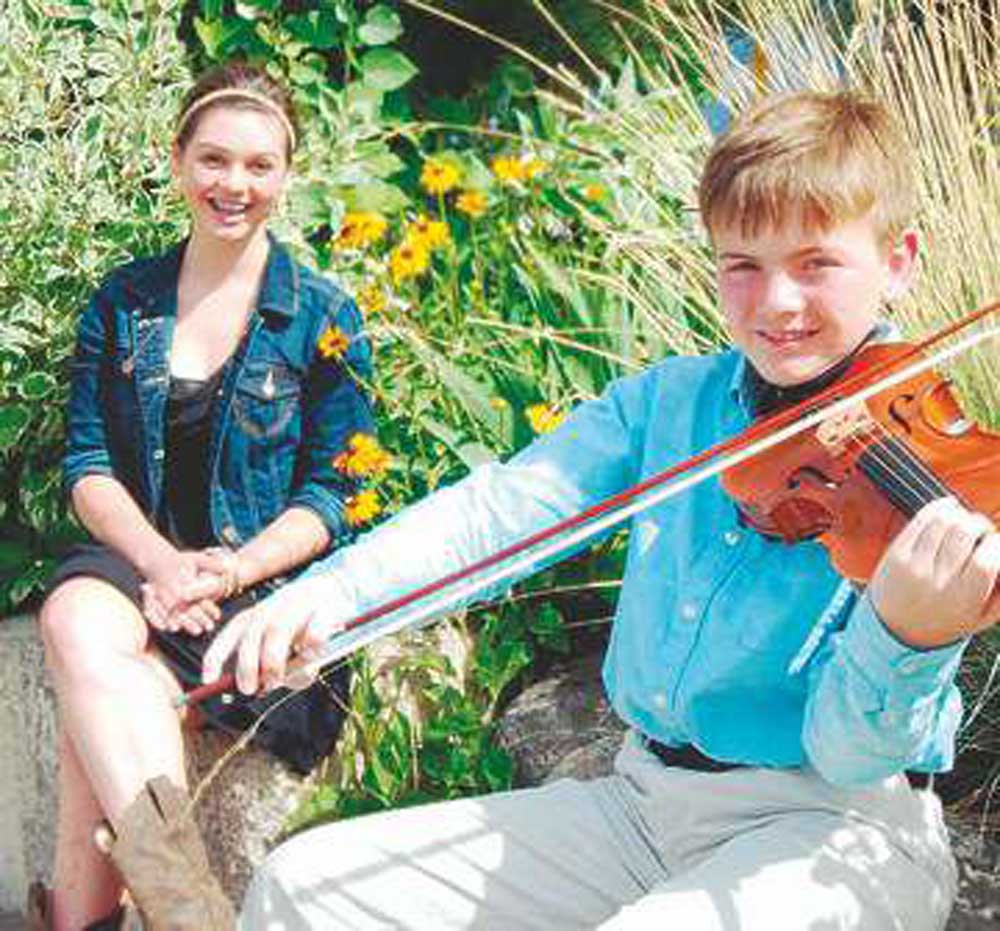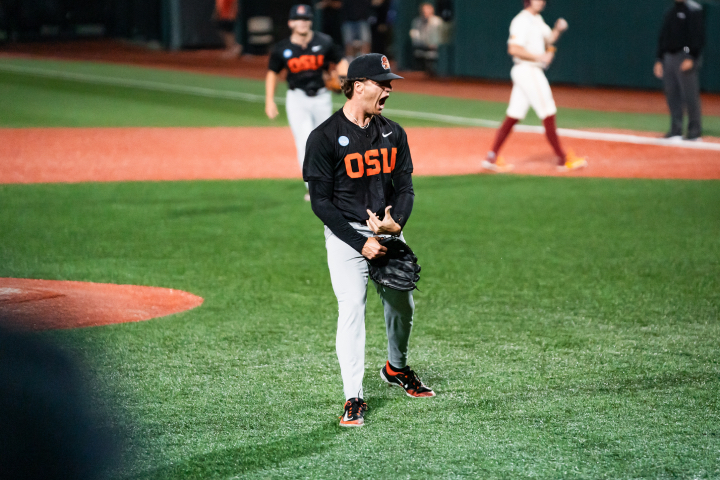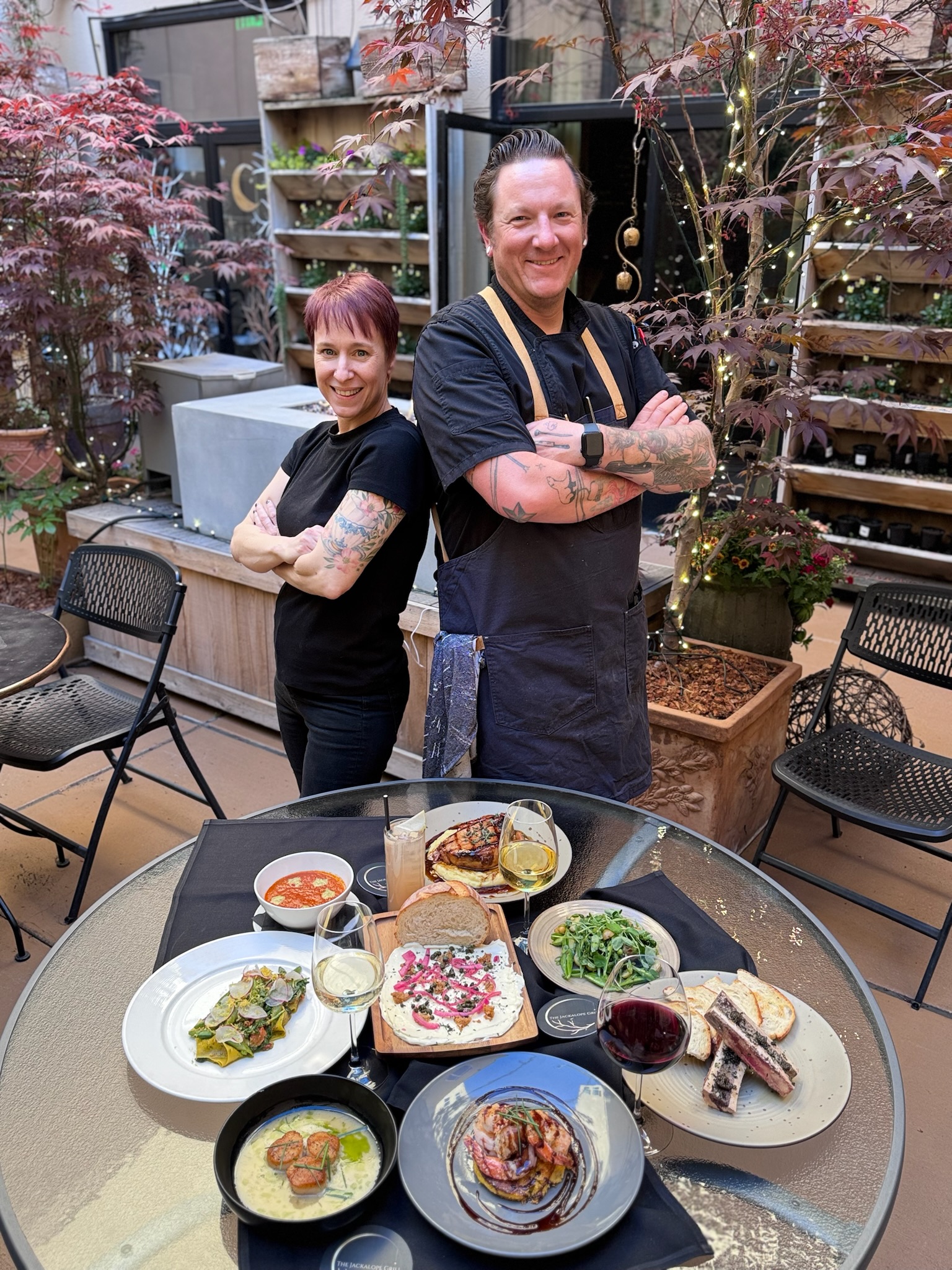Symphony celebrates the season
Published 5:00 am Friday, October 18, 2013

- Young Artist Competition winners Una Wagner and John Fawcett will perform during Central Oregon Symphony’s Fall Concert this weekend at Bend High School.
As anyone who has ever attended a Central Oregon Symphony concert could tell you, maestro Michael Gesme is the definition of a raconteur — and I don’t mean a member of Jack White’s band.
Last week, Gesme spoke with GO! Magazine between bites of a blue cheese burger at a local brewery. The topic of conversation was this weekend’s Fall Concert, and composer Franz von Suppe, whose “Morning, Noon and Night in Vienna” overture opens it (see “If you go”).
In his day — the mid-to-late 19th century — von Suppe was a highly successful composer of light operas. He wrote “Morning, Noon and Night in Vienna” when he was just 24.
Today, however, von Suppe is mainly remembered for his overtures and a few other tunes “you might recognize because it’s used in cartoons,” Gesme said. “It’s used in background music.”
Whereas the operas that followed his overtures, “they’re kind of things that have fallen off the radar,” he said. “They were timely during their era, (but) it’s like anything else. There were thousands of people making movies in the ’70s, but ‘Star Wars’ has survived.”
Though you may not know “Morning, Noon and Night in Vienna” by name, Gesme believes it will have a familiar ring nonetheless.
“What I like about this overture is that, in the first two measures, you hear this big ‘ta-da!’ kind of a thing, and everybody does a little action, and the strings go ‘bink-bink’ like this,” Gesme said. “If I stopped right there and asked everybody, ‘Have you ever heard that before?’ they would probably all say ‘Yes.’ But they wouldn’t know why.
“I’m in that same boat. I couldn’t tell you where that comes from, but if it’s not from cartoons, I would be surprised,” he said. “It’s just one of those things where you can (almost) see the people lurking around, and then the rabbit goes ‘bink-bink.’”
The overture includes a “drop-dead gorgeous cello solo,” Gesme said, adding that the upbeat last third of the piece — the “Night” portion, if you will — “gets everybody going, which is what an overture’s supposed to do.”
The Fall Concert features winners of Central Oregon Symphony’s annual Young Artist Competition, held last spring. Una Wagner, a high school junior at the Redmond Proficiency Academy, took first in the senior division and will perform two arias.
She’ll lend her voice first on George Frederic Handel’s “Ombra mai fu” from the opera “Xerxes” (sometimes spelled “Serses”).
“What you need to know about this is that Xerxes is obviously a man, but in Handel’s day, the male roles were done lots of different ways — if you were a tenor, obviously you sang tenor and if you were a bass you sang bass — but there was a practice that was still employed during Handel’s lifetime,” Gesme said. “And that was the use of castratos.”
For the luckily uninitiated, a castrato is a male castrated before, or during, puberty, preserving his ability to sing soprano.
“They had these amazing soprano voices as children, and as long as you get to them before a certain age, they will remain so for their adult life,” he said. “And they were some of the hottest ticket items in Baroque opera.”
Handel and other composers of that era wrote pieces specifically for castrato roles, Gesme said.
“The main reason for that is you can hear ’em. The higher the pitch is, the easier it is to cut over the orchestra and sing out over the room,” he said. “I hate to call it artistic value, but something about that was alluring until they realized how awful that was.”
The opening aria is considered among Handel’s finest, Gesme said, but the opera was a flop that ran for about five performances.
“The opera as a whole is serious, but somewhat tongue in cheek,” he said. We may embrace tragicomedies today, but in that day and age they couldn’t — wait for it — handle it.
“Handel is trying to make fun of certain situations,” Gesme said, “and it might have been one of the reasons the opera wasn’t so well-received: They wanted it (to be) either serious, or they wanted it funny.”
Revived in the 1920s, when people started to get its structure, the opera is widely performed today — albeit with a woman in the role of Xerxes.
Wagner will also sing the aria “Batti, batti, o bel Masetto” from Mozart’s “Don Giovanni,” the story of Don Juan, pretty much the king of womanizing louts. In the opera, “Batti, batti” is sung by Don Juan victim Zerlina to her angry betrothed.
“Batti batti” translates as “beat me, beat me,” Gesme said, adding: “Feminists have a heyday with it.”
“Arguments come down on two sides of the fence. The one is ‘I can’t believe we even sing this anymore. This seems so ludicrous,’” Gesme said. “And the other side is, ‘This woman who is singing … is in total control of the situation.’”
The first half will close with guest soloist John Fawcett, the second-place winner from the Young Artist Competition’s junior division, a violinist who has won previously. For scheduling reasons, this year’s first-place winner, Nathan Kim, could not participate.
Fawcett, a seventh grader at St. Francis School, will perform during Symphonie Espagnole by composer Edouard Lalo. While not blatantly Spanish — it’s “not full of castanets and things I would call overtly Spanish in nature,” Gesme said — the tune may call to mind the Mediterranean country.
Lalo’s composition makes “wonderful use of the fact that you’ve got a whole orchestra sitting on stage, and the violin, and they all work together, as opposed to the orchestra just plays ‘oom-pa-pa, oom-pa-pa’ and the violinist has everything,” Gesme said.
After intermission, Dvorak’s Symphony No. 5 in F Major will make up the second half of the concert.
Dvorak’s symphonies 7-9 are his most popular in terms of performance, and Central Oregon Symphony is no exception. But his earlier ones are not without merit.
“For anybody that knows the music of Dvorak, (No. 5) sounds like the music of Dvorak,” Gesme said. “These are mature Dvorak symphonies that for whatever reason just didn’t get the play that they probably merit. And they’ve been recorded and they’re out there. As a music director, you say, ‘Well, do I do No. 9 because everyone knows that one … or do I do No. 5, which is going to be brand new for a lot of people?’”
Gesme confessed: “Picking repertoire stresses me out.”
However, “The one thing that’s a constant is that — unless there is some circumstance way out of my control — I will not program a piece that I can’t get excited about.”
If you go
What: Central Oregon Symphony Fall Concert
When: 7:30 p.m. Saturday and Monday, 2 p.m. Sunday
Where: Bend High School Auditorium, 230 N.E. Sixth St.
Cost: Free, but ticket required
Contact: www.cosymphony.com or 541-317-3941






